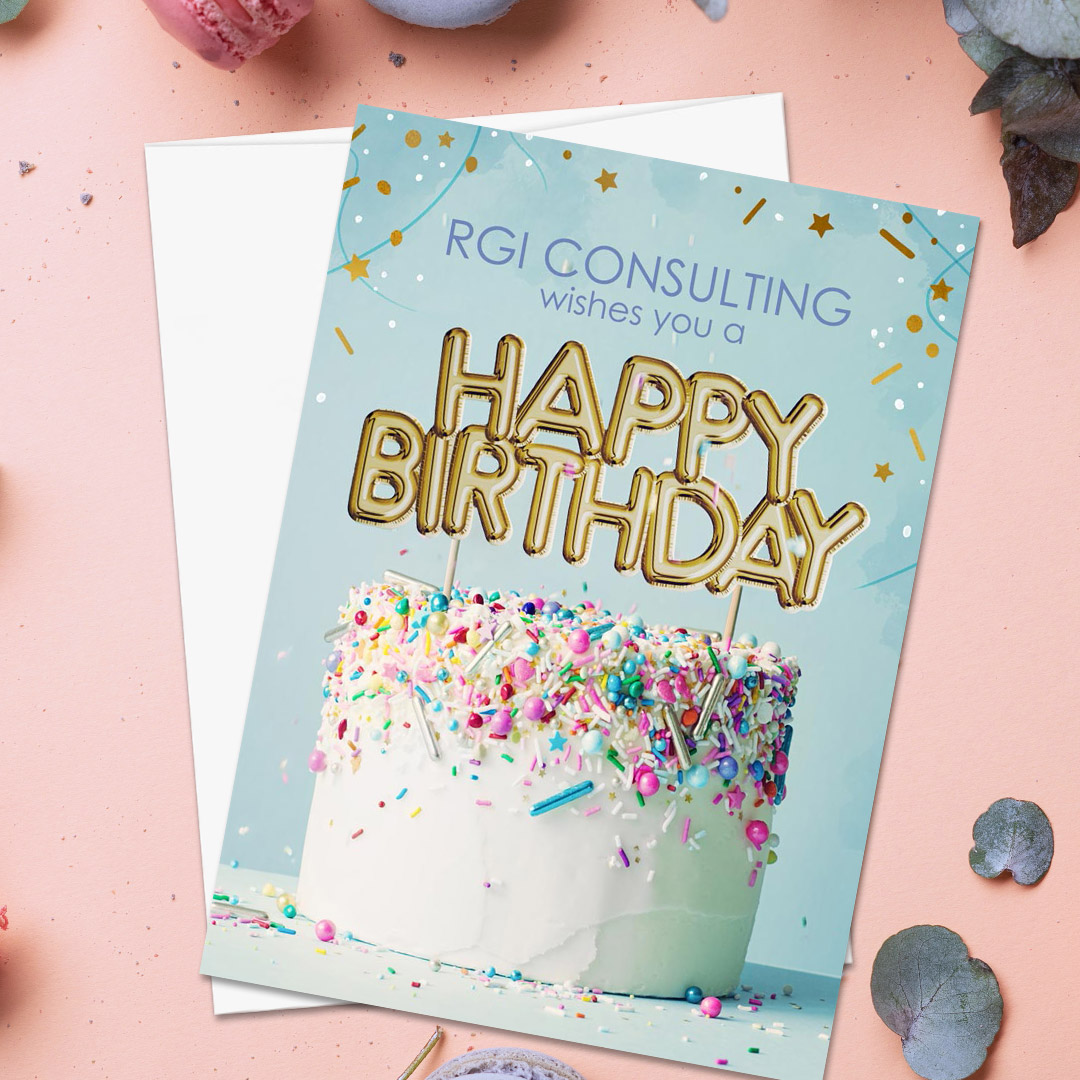#1 Select Your Design
Choose a greeting card design that speaks to your brand voice and aesthetic.
- Are you a large corporation or a small business?
- Are you a modern organization or a company built from traditional values?
- Are you a more buttoned-up and professional enterprise or do you present a more care-free and relaxed vibe?
From humorous greetings to trust-affirming cards, what elicits maximum engagement for your client base, establishes loyalty, and converts into sales?
#2 Choose Your Occasions
What holidays and observances are most important to your customers? What are their political and religious affiliations? Are there any big milestones on the horizon? What do they do for a living? These questions can determine whether to send cards for Hanukkah or Christmas, New Year’s or Rosh Hashanah, a congratulations, retirement, anniversary, or birthday card, a 4th of July or Earth Day card.
An industry-specific design is best if you cater to a specific profession, like medical professionals, law firms, or real estate clients.
Thank you cards are typically appreciated, and those can be sent anytime!
Show customers just how important their relationship means to you. You can also celebrate these special occasions with a promotion or discount.
#3 Review Your Analytics
Look at your analytics and examine previous customer correspondences, which direct mail deliverables were most successful, your buyer behaviors, and lapses in orders. In descending order, the top two uses for b2b greeting cards are to maintain loyal customers and revive lapsed customers.
#4 Personalize Every Detail
A good custom greeting card company will allow you to easily switch out the colors of your card design for maximum brand recognition. Instead of a pre-designed template, you will also have the option to create your own from scratch. If you aren’t confident in your design skills, ask a professional for assistance. Use your brand colors, fonts, and messaging to create a seamless brand identity in every greeting. You can even create custom envelopes and address labels.
Give your customers a brand-exclusive experience with something they’ll actually want to open, read, and save. Add company photos, like your team members, office culture, or products and services. Include your logo and employee signatures. Make sure the sentiments inside your card represent your brand voice and cater to your clients’ wants and needs.
#5 Include a QR Code or Promotion
To link your physical greeting card with additional parts of your business marketing, you can include a QR code that guides users to your website, a helpful article, a video, or a promotion. You can also add a trackable discount code as a “thank you,” which will allow you to monitor the success of your deliverables.
#6 Mailing Services and Online Shops
To stay on top of your customer relationships throughout the year, you can create several branded cards and schedule them with a mailing service. It’s a stress-free way to stay prepared.
If you have many employees sending greeting cards to their clients regularly, think about a partnership program with a trusted greeting card brand where everyone on your network can have unlimited access to exclusive company designs. Talk to a trusted provider and determine the best marketing strategy for your direct mail campaigns.
#7 Learn More
At the end of the day, a branded greeting card is a familiar way to wish your patrons well and celebrate their milestones. It allows you to stand out in an exhaustive digital market while strengthening relationships with a thoughtful salutation and helpful offerings for your products and services. Learn more about this affordable marketing channel and how it can help improve your business.

